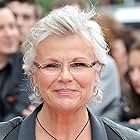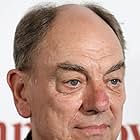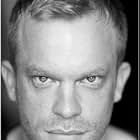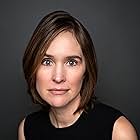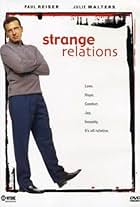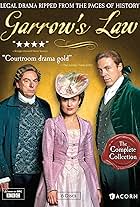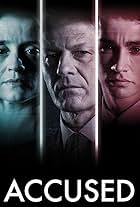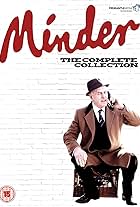Documents the rise of Mary Whitehouse during the 1960s, and the relationship between her and Sir Hugh Carleton Greene, the Director General of the BBC.Documents the rise of Mary Whitehouse during the 1960s, and the relationship between her and Sir Hugh Carleton Greene, the Director General of the BBC.Documents the rise of Mary Whitehouse during the 1960s, and the relationship between her and Sir Hugh Carleton Greene, the Director General of the BBC.
- Awards
- 1 win & 2 nominations
Photos
- Bevins
- (as James Wooley)
- Director
- Writers
- All cast & crew
- Production, box office & more at IMDbPro
Storyline
Did you know
- TriviaThe footage of Doctor Who (1963), seen on a television screen and used to depict the violence of the series, was edited to suggest that the scene takes place at the end of the episode. In fact, the scene in question took place around halfway through Doctor Who (1963) season five, episode four, "The Tomb of the Cybermen Episode 4". This clip was followed by part of the opening sequence, showing the title and Patrick Troughton's face.
- GoofsThe sign on the door of Lord Hill's office reads "Lord Charles Hill". This is incorrect as such a style implies that he was the son of a Duke or a Marquess. The sign should have read "Charles, Lord Hill", "Lord Hill of Luton" or, more likely, simply "Lord Hill".
- Quotes
David Turner: I've just had a spot of bother in Birmingham - I was ganged-up on by a group of schoolgirls and that demented housewife.
Sir Hugh Carleton Greene: Ah yes, of course. Now what *is* her name? No, don't tell me. Well you know what they say, old chap? Writing well is the best revenge.
[he turns to walk away]
Sir Hugh Carleton Greene: Though garrotting your enemy with cheesewire runs a close second.
- Crazy creditsOpening titles: "The story you are about to see really took place... only with less swearing and more nudity".
Early sixties Britain is still a fairly innocent place and Mary Whitehouse (Julie Walters), a suburban local art teacher and church-goer, lives a dainty little English existence in her quiet, dainty little Midlands village. But she becomes outraged by what she sees as declining standards on British TV, with more regular, casual bad language, sex talk and violence. The film portrays her real life crusade to 'clean up TV', bringing her into conflict with Hugh Greene (Hugh Bonneville) the new Programmes Commissioner at the BBC, who's moving with the times more and showing programmes more suited to the changing social attitudes.
It's interesting to note what a puritanical society we used to be not really so long ago, especially when we comment on the Americans and their prudish standards they still have on mainstream TV. Maybe it's the age I've been raised in but I've always been one for freedom of expression and mature adults being allowed to see what they want, so Mary Whitehouse was never a character that was going to agree with me. But even if you think her campaigns were misguided, you have to admire her determination and conviction of her will, which this very well made TV drama has portrayed.
The main thing that drives it is two superb lead performances. In the title role, Walters gives it her all as the quaint English lady with an unwavering moral compass who is forced to come to terms with society's changing ideals, attitudes, morals and beliefs while leading her campaign and similarly Bonneville is also great as the arrogant TV chief who bites off more than he can chew with the little guy.
Both the characters are very well written too, along with the script, which really gets you involved with the story, which is engaging and enthralling but refreshingly humorous, too, although in a manner risqué enough, ironically, to get Mrs Whitehouse up in arms about. ****
- wellthatswhatithinkanyway
- Jun 2, 2008
- Permalink
Details
- Release date
- Country of origin
- Language
- Also known as
- Becstelenség: Mary Whitehouse története
- Production company
- See more company credits at IMDbPro
Contribute to this page




